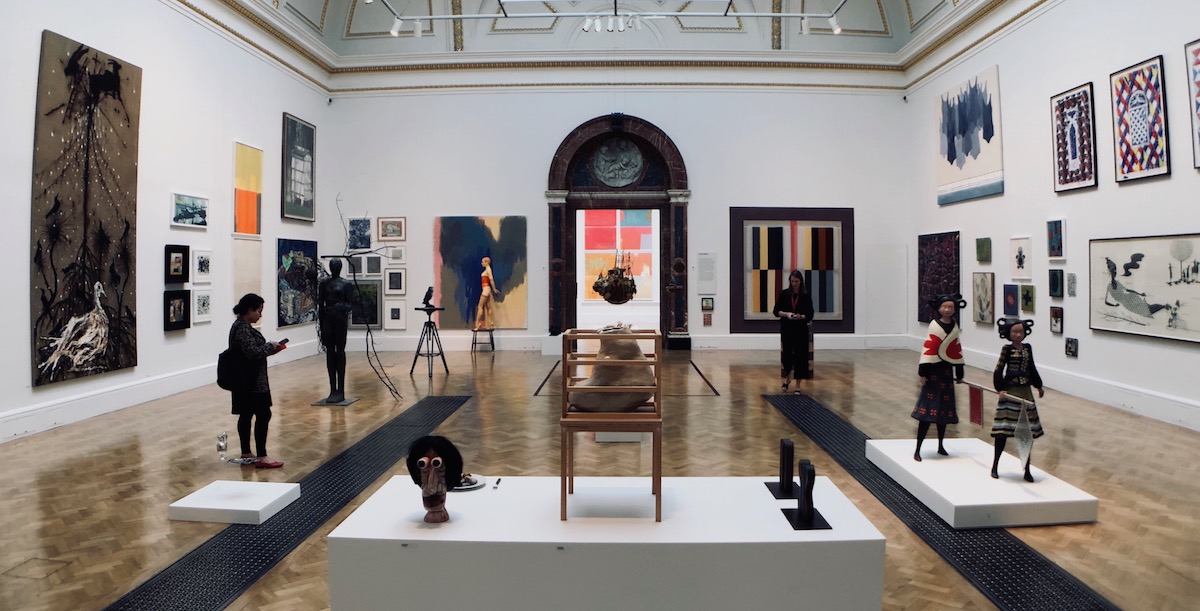The Royal Academy has announced that they will be entering a period of consultation over staff redundancies at their London gallery. This is due to the impact of COVID on ticket sales, their catering facilities and their gift shop.
The Royal Academy reopened to the public on the 16th July after shuttering their doors for over four months. The highly anticipated RA Summer Exhibition which was cancelled in June, due to COVID is set to open 6 October to 3 January 2021. With current Government, guidelines announced it is one to book now as it will fill up quickly. ‘Watch this space’. The Summer exhibition is traditionally a cash-cow for raising money for the Royal Academy Schools, a non-profit academy. If the exhibition hadn’t taken place it would have been a disaster for the institution and art school as a whole.
A group of RA artists have written to the Academy’s newly elected President Rebecca Salter recommending “The sale of Michelangelo’s tondo the only work by the artist in the UK and valued at over one hundred million GBP. This is one possible solution to the institution’s shortfall.

“A well-known Royal Academician told the Observer. “It is worth so much, it could save jobs and get the RA out of the financial mess they have got themselves into.”
A spokeswoman for the RA told the Guardian that the institution “has no intention of selling any works in its collection. We have the privilege and responsibility of being custodians of extraordinary works of art. “We must look after our permanent collection, for current and future generations to enjoy.”
Media statement from the Royal Academy of Arts: The RA announced to its staff today that it is to enter a period of consultation. Due to projected cuts to the annual budget of £8 million, approximately 150 roles could be at risk of redundancy. As an independent charity, the RA does not receive funding from government and is wholly reliant on ticket sales, Friends membership, commercial activities, donors, patrons and sponsors. COVID-19 has placed the RA under severe financial pressure. Although the RA reopened to the public as soon as possible following the easing of lockdown, social distancing reduces capacity and revenue by 75%, and we continue to incur substantial losses. This will be the situation for the foreseeable future and the Impact of COVID-19 will be felt for several years ahead. In order to secure the survival and long-term sustainability of the RA, we need to reduce annual costs by £8 million. The staff of the RA are one of its greatest assets. However, the cost of staff represents the greatest proportion of RA expenditure by far. Regretfully, this means that the majority of the £8m task will have to come from salaries. In October, the RA will therefore have to enter a period of collective consultation. In the region of 150 roles could be at risk of redundancy, which equates to around 40% of the RA’s workforce. The consultation will affect all areas and levels of the organisation. Axel Rüger, Secretary and Chief Executive of the Royal Academy of Arts said: ‘For over 250 years, the Royal Academy has championed artists and architects and inspired visitors. This pandemic has placed us under critical financial pressure. Our staff are incredibly dedicated and passionate about working at the RA; it is therefore with great regret that we confirm roles are at risk, but our focus must be on protecting the survival of the RA.’
Read More

